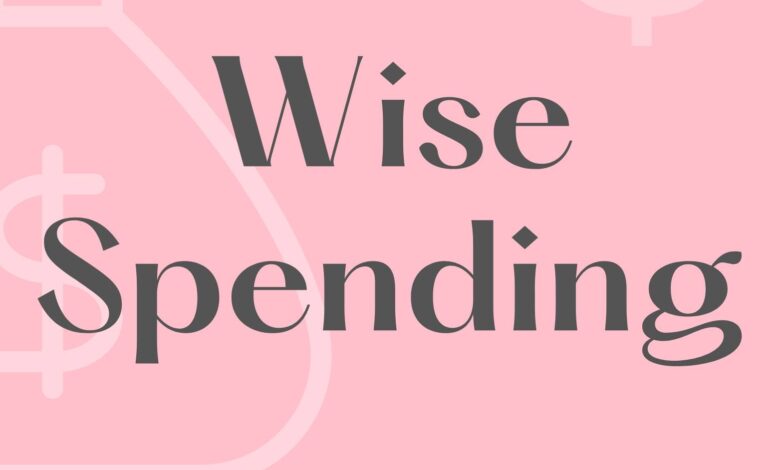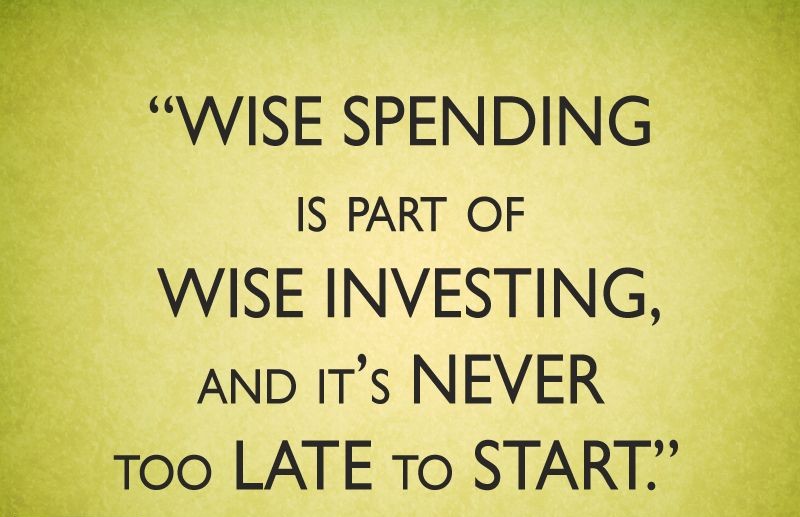Wise Spending: The Art of Balancing Money, Mindset, and Meaning

Introduction: What Does Wise Spending Really Mean?
Spending money is an inevitable part of life, but not all spending is equal. The term wise spending is often thrown around, yet very few people take the time to define what it truly means. At its core, wise spending is not about pinching every penny or avoiding indulgence altogether. Instead, it is about making choices that maximize value, align with personal priorities, and create long-term satisfaction. Wise spending is as much a mindset as it is a financial strategy.
Unlike rigid budgeting, which often feels restrictive, wise spending is flexible. It acknowledges that money is not just a survival tool but also a source of joy, convenience, and growth. When you spend wisely, you don’t merely ask, “Can I afford this?” You also ask, “Does this purchase serve a deeper purpose in my life?” This subtle shift in thinking creates a healthier relationship with money.
Another crucial aspect of wise spending is awareness. Far too often, people fall into the trap of impulse buying, advertising manipulation, or keeping up with trends that do not genuinely matter to them. By cultivating self-awareness, individuals can identify the difference between a purchase that brings lasting value and one that provides only fleeting satisfaction.
Ultimately, wise spending is less about strict rules and more about conscious choices. It allows individuals to enjoy life today while preparing for tomorrow. It creates balance between financial stability and personal happiness, ensuring that money becomes a tool, not a trap.
The Psychology Behind Wise Spending

Wise spending begins in the mind long before it plays out in your wallet. Our spending habits are heavily influenced by psychology, and understanding these patterns can unlock the secret to better decisions. Many people buy not because they need something, but because they are triggered by emotions, stress, or social pressure. Shopping has become an emotional outlet for joy, comfort, or even distraction. This is why mastering the psychology behind spending is essential.
One key factor is the concept of “opportunity cost.” Every dollar spent in one direction is a dollar unavailable for another purpose. For instance, spending $200 on a luxury dinner might feel amazing in the moment, but what if that same $200 could contribute to a weekend trip that creates lifelong memories? When people consider opportunity costs, they tend to pause and evaluate whether the expense aligns with their bigger picture.
Another psychological driver is the “dopamine effect.” Humans are wired to feel a rush of pleasure when buying something new. This temporary high is often mistaken for happiness, but it quickly fades, leading to more spending in search of that next dopamine hit. Recognizing this cycle is a powerful step toward breaking it. Wise spenders learn to delay gratification and focus on purchases that bring sustained satisfaction rather than quick thrills.
Finally, wise spending involves redefining the concept of value. Instead of simply chasing bargains or discounts, it asks deeper questions: Is this product durable? Does it enrich my life? Will I still appreciate it a year from now? By reframing value in terms of quality, longevity, and personal meaning, individuals can escape the trap of mindless consumption and embrace intentionality.
Practical Strategies for Practicing Wise Spending
Understanding wise spending in theory is valuable, but putting it into practice is where the real transformation happens. The good news is that developing this skill does not require drastic lifestyle changes. Instead, it thrives on small, intentional adjustments that accumulate over time.
The first practical strategy is prioritization. Make a list of what truly matters to you—whether it’s travel, education, health, or experiences with loved ones. When you know your priorities, it becomes easier to filter out expenses that do not align with them. Instead of feeling deprived, you gain clarity. Money spent on things that matter brings satisfaction; money wasted on trivial distractions often leads to regret.
Another strategy is mindful tracking. Many people avoid looking closely at their finances out of fear or discomfort, but awareness is empowering. By tracking expenses, even casually, you begin to notice patterns. Perhaps you’ll realize that small daily indulgences like coffee shop runs add up to hundreds of dollars a month—money that could instead be redirected toward something more meaningful, like a vacation fund.
A third strategy is embracing the “pause rule.” Before making a purchase, especially one outside your usual needs, pause for 24 hours. This small delay disrupts impulse-driven decisions and allows time to assess whether you truly need the item. Surprisingly often, the desire fades, leaving you grateful for the money saved. If the desire persists, you can move forward knowing it’s a thoughtful choice, not an emotional reaction.
Lastly, wise spending does not mean rejecting pleasure. It means indulging intelligently. Treating yourself to a nice dinner, upgrading your phone, or buying stylish clothes is not unwise if it fits your financial plan and enriches your life. The key is to distinguish between genuine enjoyment and empty consumption. Wise spending honors both joy and responsibility, proving that financial mindfulness can be both practical and pleasurable.
How Wise Spending Impacts Long-Term Financial Health
When people think about financial stability, they often focus solely on income. Yet, it is not just how much you earn—it’s how you spend. Even a high salary can be drained by careless spending, while moderate earnings can create wealth when managed wisely. This is where the practice of wise spending shows its long-term benefits.
Wise spending lays the foundation for savings and investments. By controlling unnecessary outflows, individuals free up resources to build emergency funds, retirement accounts, or investment portfolios. This creates security and opportunities for future growth. Instead of living paycheck to paycheck, wise spenders create a financial cushion that reduces stress and opens doors.
Another impact is debt management. Many people fall into debt not because of unavoidable emergencies, but because of lifestyle inflation—spending more as they earn more. Wise spenders resist this temptation. They understand that debt tied to fleeting pleasures is far costlier than the satisfaction it provides. By managing debt responsibly, or avoiding it when possible, they protect their future freedom.
Furthermore, wise spending strengthens resilience against financial shocks. Life is unpredictable—medical bills, job loss, or economic downturns can disrupt even the best-laid plans. However, those who practice wise spending are better prepared. Their financial choices create flexibility, enabling them to adapt without spiraling into panic or desperation.
Ultimately, wise spending is not about being miserly. It is about ensuring that money works for you both now and later. Every dollar saved and invested compounds into something greater over time, creating not just stability but also options. Freedom, after all, is one of the greatest luxuries money can buy, and wise spending is the bridge to that freedom.
The Lifestyle Benefits of Spending Wisely
Wise spending is often discussed in financial terms, but its ripple effects extend far beyond money. When practiced consistently, it creates a lifestyle that is more intentional, fulfilling, and less burdened by stress.
One benefit is mental clarity. Constant financial pressure takes a toll on the mind, leading to anxiety and decision fatigue. By practicing wise spending, you reduce unnecessary financial chaos. The result is peace of mind, allowing you to focus energy on passions, relationships, and goals rather than bills or regrets.
Another benefit is alignment with personal values. Wise spending ensures that your money reflects who you are and what you care about. If you value family, you might choose to spend more on creating experiences together rather than on luxury goods. If you value learning, you may prioritize courses or books over fleeting entertainment. This alignment transforms money from a source of stress into a reflection of purpose.
Moreover, wise spending fosters gratitude. When you spend intentionally, you learn to appreciate what you already have instead of constantly chasing the next purchase. This gratitude reduces the cycle of comparison and consumerism, helping you feel more content. Contentment, ironically, often leads to smarter financial choices because you are no longer trapped by the illusion that happiness lies in the next shopping bag.
Finally, wise spending nurtures freedom and flexibility. Instead of being tied down by obligations, bills, or regrets, you gain control over your life choices. Want to change careers, take a sabbatical, or travel more? Wise spending gives you the ability to say yes without financial fear. In this way, it is not just about saving money—it is about buying back your time, options, and peace of mind.
Conclusion: Wise Spending as a Lifelong Practice
Wise spending is not a single decision but a lifelong practice, shaped by awareness, discipline, and evolving priorities. It teaches us that money is not an end in itself but a powerful tool for creating a life that feels purposeful and fulfilling. By shifting focus from mindless consumption to intentional choices, individuals can enjoy both present pleasures and future security.
The beauty of wise spending lies in its balance. It is not extreme frugality that robs life of joy, nor reckless indulgence that sabotages the future. It is the art of spending in harmony with one’s values, needs, and long-term vision. In doing so, money transforms from a source of stress into a partner in building the life you truly want.
Every purchase, big or small, carries meaning. Wise spending challenges us to recognize that meaning, to pause before we swipe, and to align our financial choices with the bigger story of our lives. When mastered, it brings not just financial health, but also emotional well-being, freedom, and a deeper sense of satisfaction.



